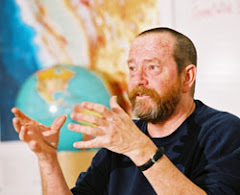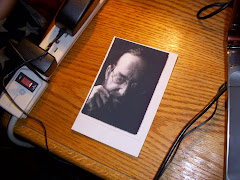While on my power walk down the Roaring Fork bike path in Glenwood last week, I sat on a bench, winded, watching the snowmelt flood by, and thought, once again, “I’ve chosen a great place to live!” Since 1973, after a 15 year westward migration from New Jersey, I’ve called the High Country my home, and, in 1993, I fit Glenwood’s Sister City, Teote, Nicaragua, into that space as well. “Home” is as our hearts define it: mine now extends to all the Americas and out to the rest of the world. It’s made me a bigger person.
A young Hispanic man sat down on the bench. “I recognize your face, Sr. Evans Betanco,” he said, “from your Post Independent articles, and I have some questions. My name is Noë.” He spoke in heavily-accented English. I jumped at the chance to practice my Spanish, and he, his second language, so we jabbered away bilingually, a global delight. Then, he asked me if war still raged in Nicaragua, a question I’m asked often, with a complex answer.
“No,” I said, “there’s no war, not with mortars and guns. The Contra War’s been over since 1989. But yes, even so, there’s economic war between the rich and poor worlds, a vast tension from in- and outside Nicaragua, with no real middle: as a result, Nica’s ruined in all but spirit, perhaps irreversibly.”
“It’s the same in Chihuahua for most of my family: not many dreams for campesinos, except to move north,” the young man remarked. “If there were hope for the poor within Mexico, I probably wouldn’t be in this fragrant valley,” he said, smelling the coldness of snow in the river, the sweet rocket blooming. “I love it here, too, but I’d live where that hummingbird’s been, at the house of my grandfather. I’d be helping him plant corn on the hillsides, running with his horses.”
“Ah, yes,” I nodded. “Many forces converge to keep the poor in hopeless poverty, south of Texas. The Sandinistas triumphed in 1979, but their freedoms were stolen away, again, by external economic pressure and an illegal travesty of an American-sponsored war.”
“That’s sad.” His eyes followed a stick of driftwood carried on the surface of the water.
“The global economy needs the entrenched rural poor to do its agricultural handwork for slave wages, to keep prices down in the north,” said the college professor in me. “There’s no opportunity allowed. So, rather than revolution, which no one wants now, a third of Teote’s youth have come up the rivers for hope, fighting against the world’s current. They work here to purchase freedom down there for their families, with money they can’t earn in the calculated exploitation of Nicaragua’s poor.”
“It is the same in the mountain valleys of Chihuahua.” Relentlessly, the river rushed to dwindle in California.
“It’s the same all over the Southern Hemisphere. Humanity's witnessing the greatest migration of peoples ever, from Africa and Asia, from Central and South America, moving north to countries with work and money, not just here in the States.”
“And sending much of their earnings back south,” said Noë, “to feed grandparents, to buy land for a better future. My job after high school has bought me an acre in Mexico. I’m a landowner now; in a few years, it’ll be in my name. If I’d stayed in Chihuahua, I’d own just the second-hand clothes on my back.”
“We’re freedom fighters, you and I, each in his way. If you’re any indication, mi amigo, I’d say the Hispanics are winning the war, this time.”
We smiled at each other. He straightened with pride, glowed with the prescience of youth, and whispered, “Both sides will win in the end, over time, you’ll see, my friend. It’s not a war. We want only to live, to breathe free, to contribute.” He bowed his head as a breeze whiffed across the Roaring Fork, cooling our faces.
I felt like a very young man for a moment.
The river pushed past. The rocks in its channel tumbled, grinding, clicking beneath the swish of its waters.
Gracias, CenterDoug
Tuesday, June 24, 2008
Subscribe to:
Post Comments (Atom)
















































































No comments:
Post a Comment